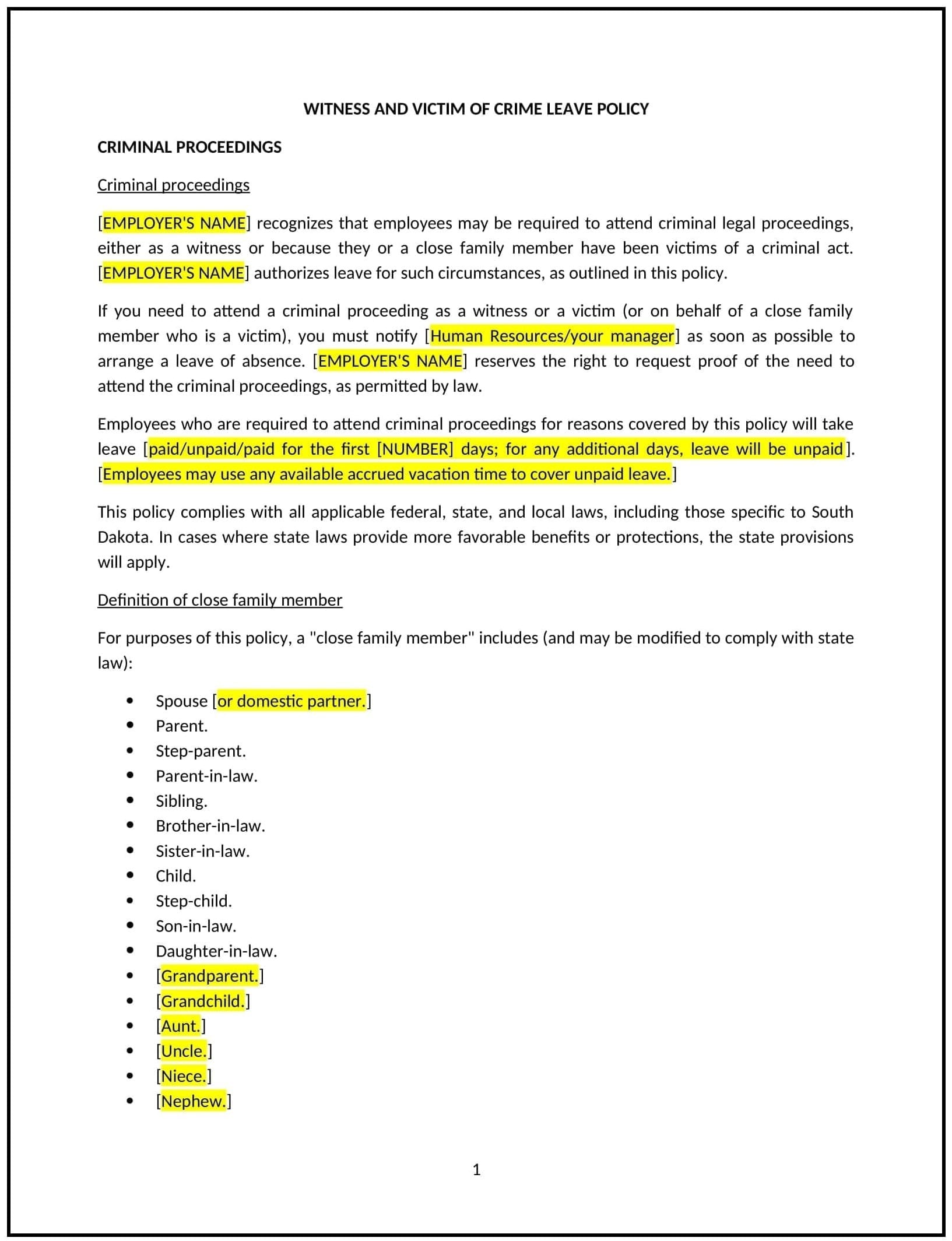Witness and victim of crime leave policy (South Dakota): Free template
Got contracts to review? While you're here for policies, let Cobrief make contract review effortless—start your free review now.

Customize this template for free
Witness and victim of crime leave policy (South Dakota)
This witness and victim of crime leave policy is designed to help South Dakota businesses establish guidelines for employees who need time off to participate in legal proceedings as a witness or victim of a crime. It outlines procedures for requesting leave, pay during leave, and job protection.
By adopting this policy, businesses can support employees in fulfilling their civic responsibilities while maintaining workplace productivity and compliance with state laws.
How to use this witness and victim of crime leave policy (South Dakota)
- Define eligibility: Specify which employees are eligible for leave, such as those subpoenaed as witnesses or victims of a crime.
- Set request procedures: Provide steps for employees to request leave, including required documentation and notice.
- Address pay during leave: Clarify whether employees will be paid during their absence, in accordance with state laws.
- Ensure job protection: Guarantee that employees will return to the same or an equivalent position after completing their leave.
- Communicate expectations: Outline how employees should handle work responsibilities before and after their absence.
- Train managers: Educate supervisors on handling leave requests and maintaining workflow during employee absences.
- Review and update: Assess the policy annually to ensure it aligns with evolving business needs and legal requirements.
Benefits of using this witness and victim of crime leave policy (South Dakota)
This policy offers several advantages for South Dakota businesses:
- Supports civic engagement: Demonstrates a commitment to helping employees fulfill their legal obligations.
- Enhances employee satisfaction: Shows employees that the business values their contributions to the justice system.
- Aligns with legal standards: Ensures compliance with state laws regarding leave for witnesses and victims of crime.
- Builds trust: Fosters a positive relationship between employees and the business by supporting their civic responsibilities.
- Reduces disruptions: Provides clear guidelines for managing employee absences, minimizing workflow interruptions.
Tips for using this witness and victim of crime leave policy (South Dakota)
- Communicate the policy: Share the policy with employees and include it in the employee handbook.
- Provide training: Educate managers on handling leave requests and maintaining workflow during employee absences.
- Monitor compliance: Regularly review leave requests to ensure adherence to the policy.
- Address issues promptly: Take corrective action if requests are mishandled or denied improperly.
- Update regularly: Review the policy annually to ensure it aligns with evolving business needs and legal requirements.